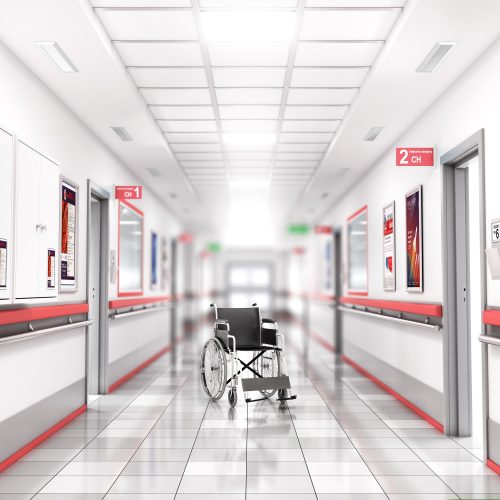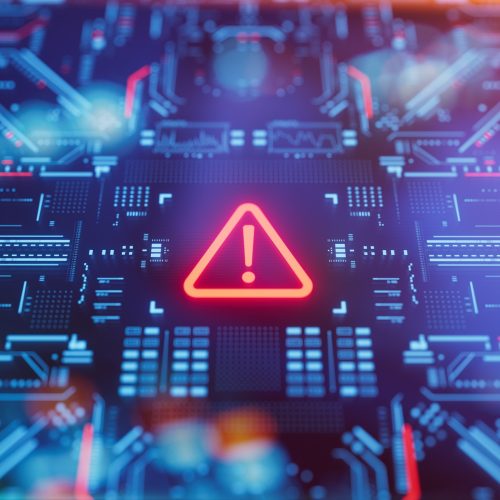Healthcare Law Alert: SCOTUS Blocks Enforcement of OSHA Vaccine-or-Test Mandate, Gives Temporary Green Light to CMS Vaccine Rule – at Least for Now
1/14/2022
On January 13, 2021, the Supreme Court of the United States (the Supreme Court) issued opinions in the pending actions relating to the U.S. Department of Labor, Occupational Safety & Health Administration (OSHA) COVID-19 Vaccination and Testing Emergency Temporary Standard (OSHA ETS) and the Centers for Medicare & Medicaid (CMS) Omnibus COVID-19 Health Care Staff Vaccination Final Rule (CMS Rule). In short, as of now, the OSHA ETS is on hold and the CMS Rule is enforceable.
OSHA ETS – On Hold
The OSHA ETS covers virtually all employers with at least 100 employees. It requires covered employers to implement policies mandating that covered workers receive a COVID-19 vaccine, and it pre-empts (overrides) state laws to the contrary. An employer may implement a policy excepting a worker from the vaccine requirement if the worker obtains a medical COVID-19 test weekly, at the worker’s own expense and on the worker’s own time, and wears a mask in the workplace. Unvaccinated workers who do not comply with the OSHA ETS must be removed from the workplace.
A number of states, businesses, and nonprofit organizations challenged the rule, arguing that OSHA’s mandate exceeds the agency’s statutory authority and is otherwise unlawful. The cases were consolidated to the Sixth Circuit. However, prior to consolidation, the Fifth Circuit stayed the OSHA ETS pending further judicial review. After other legal proceedings, the Fifth Circuit stay was lifted and applications were submitted to the U.S. Supreme Court for emergency review.
In its January 13, 2022 decision, the Supreme Court agreed that the parties challenging the rule are likely to prevail on their claim that OSHA lacked authority to impose the mandate, and granted their applications to stay the rule. The Supreme Court stated, “The Secretary [of Labor] has ordered 84 million Americans to either obtain a COVID-19 vaccine or undergo weekly medical testing at their own expense. This is no ‘everyday exercise of federal power.’ It is instead a significant encroachment into the lives—and health—of a vast number of employees.” (Citations omitted.) The Supreme Court held that the Occupational Safety and Health Act “empowers the Secretary to set workplace safety standards, not broad public health measures.”
The Supreme Court granted the applications to stay the OSHA ETS pending further disposition of the outstanding legal challenges.
CMS Rule – Enforceable
The CMS Rule mandates COVID-19 vaccination of healthcare workers at all Medicare-certified providers and suppliers covered by the rule, unless an exemption from vaccination is granted for medical or religious reasons. Medicare-certified healthcare providers and suppliers covered by the rule include, but are not limited to, hospitals, psychiatric residential treatment centers, ASCs, long-term care facilities, home health agencies, and hospices. The CMS Rule does not directly apply to private medical practices, but employees placed to work in facilities covered by the rule may be required by such facilities to be vaccinated in order to provide services within such facilities.
After legal challenges led by various groups of states represented separately by Louisiana and Missouri, the U.S. District Courts for the Western District of Louisiana and the Eastern District of Missouri each issued preliminary injunctions against enforcement of the CMS Rule. In each case, the U.S. Government moved for a stay of the injunctions, both of which were denied by the relevant District Court of Appeals. The Government then filed applications requesting the U.S. Supreme Court to stay both preliminary injunctions. In its decision issued on January 13, 2022, the Supreme Court granted the Government’s request to stay both of the preliminary injunctions that had so far halted enforcement of the CMS Rule in the states affected by those injunctions. The practical effect of the decision is that the CMS Rule is now enforceable in all states.
The Supreme Court agreed that the CMS Rule falls within the authorities granted to the Secretary of Health and Human Services (the Secretary) by Congress under the Social Security Act. These include the authority to impose conditions on the receipt of Medicare and Medicaid funds when determined by the Secretary to be in the interest of the health and safety of Medicare and Medicaid beneficiaries. In addition, the Supreme Court reasoned that the Secretary routinely imposes conditions of Medicare and Medicaid participation that relate to the qualifications and duties of healthcare workers. The Supreme Court also stated that the CMS Rule cannot be described as “arbitrary and capricious” since the Secretary examined relevant data and considered a multitude of factors such as staffing shortages.
In sum, the Supreme Court’s decision re-activates enforcement of the CMS Rule in all 50 states while awaiting disposition of the actions pending in the relevant U.S. Courts of Appeals and other related proceedings.
Relationship to NJ EO252
Earlier this week, New Jersey Governor Phil Murphy reinstated the Public Health Emergency in the State of New Jersey, “in order to ensure that the State is able to respond to the continued threat of COVID-19 and the rapidly spreading Omicron variant.” In addition to other measures related to the battle against COVID-19, the continuation of the Public Health Emergency also extended various Executive Orders including Executive Order 252 (EO252). In short, EO252 requires certain healthcare facilities and high-risk congregate settings covered by EO252 to maintain a policy requiring workers assigned to covered settings to provide proof of full COVID-19 vaccination or to submit to COVID-19 testing once or twice weekly. Please refer to our August 10, 2021 Healthcare Law Alert for details.
For those Medicare-certified providers and suppliers covered by the CMS Rule and also obligated under EO252, the more stringent requirements of the CMS Rule control over EO252. Therefore, entities that must comply with the CMS Rule cannot provide an “option” to workers to vaccinate or test. However, the CMS Rule permits the employer under certain circumstances to grant to an employee, on a case-by-case basis, a medical or religious exemption from vaccination because of disability, medical condition or sincerely held religious belief, practice or observance. In the event of such an exemption, the employer must implement processes to mitigate the transmission of COVID-19 for non-vaccinated staff. These mitigation processes may include, for example, one or twice weekly COVID-19 testing, mask requirements, physical distancing, and other safety practices.
Quick Action Is Needed
Medicare-certified providers and suppliers covered by the CMS Rule should take prompt action to finalize and implement policies and procedures to comply with the CMS Rule. The deadline for Phase 1 implementation was January 27, 2022, and the deadline for Phase 2 implementation is February 28, 2022. Providers and suppliers out of compliance with the deadlines may face enforcement actions and potential penalties.
If you need assistance in preparing, reviewing, or implementing policies to comply with any of the rules discussed above, please feel free to contact the attorneys below.
John D. Fanburg, Managing Member and Chair, Healthcare Law, at 973-403-3107 or jfanburg@bracheichler.com
Isabelle Bibet-Kalinyak, Member, Healthcare Law, at 973-403-3131 or ibibetkalinyak@bracheichler.com
Lani M. Dornfeld, CHPC, Member, Healthcare Law, at 973-403-3136 or ldornfeld@bracheichler.com
Joseph M. Gorrell, Member, Healthcare Law, at 973-403-3112 or jgorrell@bracheichler.com
Carol Grelecki, Member, Healthcare Law, at 973-403-3140 or cgrelecki@bracheichler.com
Related Practices: Healthcare Law
Related Attorney: John D. Fanburg, Lani M. Dornfeld, Joseph M. Gorrell, Carol Grelecki











